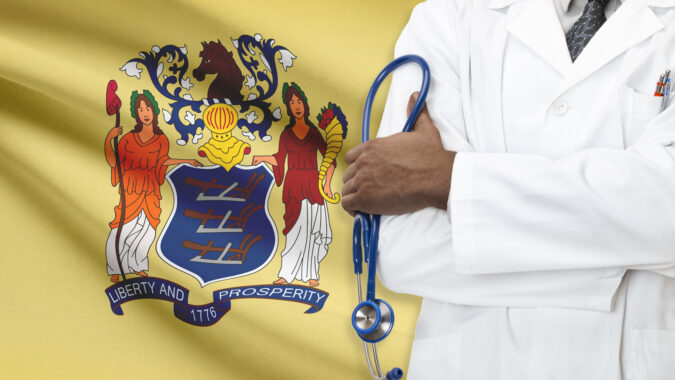The healthcare workforce crisis is not unique to New Jersey, but the Garden State is looking to do something about it.
That’s why NJBIA is strongly supporting a nine-bill package to encourage more people to enter the healthcare industry, while eliminating barriers that stand in the way of qualified applicants finding work.
“These bills will go a long way in attracting individuals into healthcare professions and ease regulatory burdens while maintaining the highest level of care for New Jerseyans,” said NJBIA Vice President of Government Affairs Alexis Bailey.
Leading the bill package, primarily sponsored by Assembly Majority Leader Lou Greenwald (D-6), is A-4617, which requires the state Department of Labor and Workforce Development to work with healthcare stakeholders to identify unemployed individuals who can be trained to work in the healthcare fields.
As an extra step, bill A-4618 creates an online job portal with NJDOLWD to help connect behavioral healthcare workers with job openings in the field.
Both bills advanced out of the Assembly Labor Committee last week and have been second referenced to the Assembly Appropriations Committee.
They come after the New Jersey Hospital Association reported turnover rate at places like intensive care units and nursing homes jumped from 18% to 30% in 2021.
“This is a sector that we know was suffering pre-pandemic with a workforce shortage and the pandemic only exacerbated the shortages that we’re seeing,” Bailey told NJ Spotlight News anchor Briana Vannozzi this week.
“So, this bill (A-4617) will really have the Department of Labor work with some people who are unemployed and try to get them into training and different opportunities in the healthcare field. It can help people get off the sidelines and fill in a lot of the gaps that we’re seeing in the healthcare industry.”
Bailey said training for credentialing programs, whether it’s for certified nursing assistants or home health aides, can be done “relatively quickly.”
“It’s really just about connecting people who are on the sidelines who might be a good candidate for these types of roles and getting them into the programs and connected with employers,” Bailey told Vannozzi.
“And we know that the Department of Labor does this all the time with people who interact with workforce development boards and our one-stop centers across the state. This (bill) is a way to kind of enhance that mechanism and make it more targeted and focused toward healthcare.”
Other bills in the package include:
- A-4613: Creates a new loan redemption program for primary care physicians, pediatric doctors, psychiatrists, and any other physician identified by DOL as being in short supply. (Advanced past Assembly Higher Education Committee)
- A-4614: Changes the eligibility criteria for the Nursing Faculty Loan Redemption Program to incentivize more people to become nursing teachers.
- A-4615: Requires State to foster development and implementation of graduate medical education programs in behavioral healthcare. (Advanced past Assembly Higher Education Committee)
- A-4616: Lessens onerous examination requirements for respiratory care therapists looking to become licensed in New Jersey.
- A-4619: Extends temporary emergency licensure for out –of –state practitioners and recent graduates permanently.
- A-4620: Requires Board of Medical Examiners and Department of Human Services to come together and create a standardized application for both licensing and Medicaid credentialing.
- A-4621: Requires a report on processing of professional licenses from the Division of Consumer Affairs.
“There exists a dire shortage of healthcare workers in our state,” Greenwald said. “Burnout, inflation, and shifting worker expectations have disproportionately impacted the healthcare workforce when compared to other industries.
“With so many in the workforce aged 65 and above, the shortage and vacancy rates are ever growing and nearing catastrophic levels. Worst yet, in the coming years New Jersey is projected to see some of the highest shortages in the nation.
“Unless we reverse the trend, the remaining but dwindling cadre of dedicated professionals will be too few to shoulder the necessary responsibility of caring for our seniors, children, and those who are sick or disabled.”

